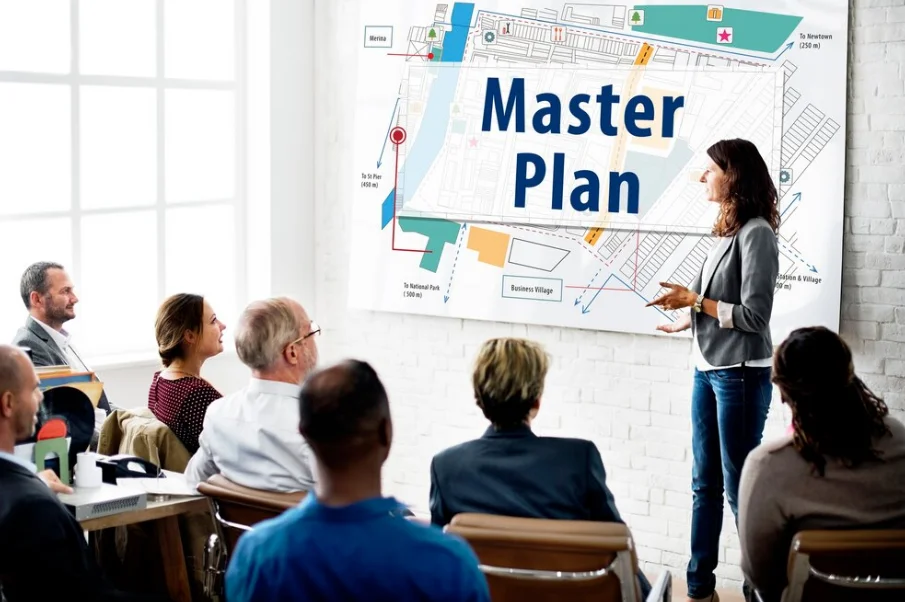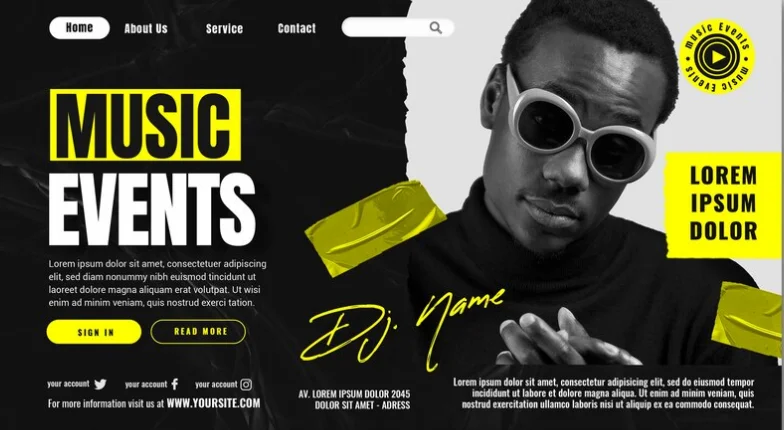8 Types of Event Marketing to Greatly Boost Your Online Business
Summer Nguyen | 03-17-2025

When was the last time you attended an event?
Was it a webinar or an exhibit? A trade show or business launch party hosted online? What about an interesting, socially distanced 5k?
These events are distinct, but to the organizations or brands who organized them, they all had a popular aim: to engage and entertain participants (also called potential customers).
Event marketing is a remarkably effective strategy for all types of businesses, from education and technology to retail, medicine, and non-profit.
Events are not only beneficial for their organizations and sponsors but also valuable to their participants. Events inspire, educate, interest, entertain and bring people closer together in a way distinguished from other marketing attempts.
That’s the reason we provide some fresh insights into event marketing and types of event marketing. This guide will aid you to greatly capitalize on event marketing for your online business.
What is Event Marketing?

Event marketing is planning, building, and implementing an event for the aim of marketing a brand, product, or service. Events can be organized in person or online, and brands can either host an event, join as an exhibitor, or attend as a sponsor.
When it comes to event marketing, there are a number of events. You can host a small roundtable of seven to ten attendees, partner with another company or sponsor a 5K, or organize an exhibit at a big trade show - or host one of these online.
You can set up a multi-day event that engages thousands of participants, speakers, sponsors, etc. For example, INBOUND has hosted sessions every year online and attracted a large number of attendees across the world.
It doesn’t matter the platform’s size for your event, provided that you’re giving value to your clients, potential clients, and brands.
Why Event Marketing Matters to a Business?

Generate one-on-one customer engagement
Many software and e-commerce businesses never need to meet their clients in person. That’s where event marketing comes in handy.
According to a Bizzabo study, 93% of marketers assume that in-person events open a precious chance to build connections in an increasingly digital world.
Attracting clients and potential clients at events would help create personal interactions. These personal, one-on-one connections contribute to brand loyalty and let your clients humanize your brand. Besides, events also offer a reprieve from the distractions of everyday life - meaning you can grab a customer’s attention better than over a phone call or in-office PR. With that attention, you have an opportunity to sell or upsell your goods and services.
Promote product and industry education
No matter what kind of event your brand sets up or participates in, there’s most probably an education part. That’s what makes event marketing so effective - they don’t concentrate exclusively on a brand or product.
Meanwhile, they concentrate on educating and engaging a demographic or industry and market products and services on the side.
Boost brand awareness
Hosting or attending events is a great way for brands to establish and develop their brand. 64% of event marketers claimed that the main reason for setting up events is brand awareness for their company or products.
Event marketing enables you to combine a physical identity and aesthetic with a different digital brand. For instance, with pop-up stores, events bring a genuinely immersive experience at which customers can have a real feel for your company and what it looks like in person.
The most interesting part about utilizing events to increase brand awareness? People discuss events. Customers, media, influencers, bystanders discuss events in person, on social networks, in the press, etc. That makes events an awesome way to teach and notice people of your brand and products.
Generate businesses
Brands decide to invest in event marketing as events inherently create new businesses and revenue opportunities. In-person events can have a considerable impact on gaining their company’s main business goals.
As an event host, the registration process can create a number of people who are already concerned about your product, industry, or at least fall in your target audience. If you join or sponsor an event, you can accumulate leads via an email list, demo offering, or by starting a competition.
15 Types of Event Marketing to Drive Business Success

To build a holistic event marketing program, make sure you employ both online and offline events to reach as many potential customers as possible.
In-person events
There’s nothing better than meeting clients and leads directly. Using in-person events is a clever way to move beyond a digital presence and connect with customers on a closer level.
According to research by Eventbrite, 69% of millennials presume that joining live events and experiences brings them closer to other people, the community, and the world. By building a space for people to interact face-to-face with your brand and other consumers, you can establish a loyal following and increase brand awareness.
There are some formats your live events can apply, but the most popular are conferences, trade shows, meetups, or customer appreciation events.
1. Trade shows
Trade shows bring together individuals and brands in a specific industry or profession and are often used for lead generation and brand awareness boost.
As there are many companies present at trade shows, it’s essential to think about how to make your brand outstanding. If you’re a sponsor with a booth, you had better think about the layout and location of your booth as well as creative event photo booth ideas that can draw in attendees. A branded photo booth can provide an engaging and interactive experience, offering guests the chance to take fun photos with custom props or backgrounds related to your brand.
2. Conferences
These large-scale events take up a major portion of the events industry. Conferences often have a schedule packed with brilliant speakers, educational workshops, and useful networking sessions. The most successful conferences are the combination of a professional environment and a dynamic, social atmosphere.
For instance, Apple’s World Wide Developer Conference 2019 is a big-scale conference. The product, content, and keynote updates are provided based on the developers and product users’ interests and concerns. There were highly expected speakers and sessions that show customers how to make the most use of their products.
Do you know that sponsoring a conference will improve your brand recognition at the event? Thanks to your logo on marketing materials and a presence on the floor with your booth, participants who are searching for new solutions can easily find you.
3. Appreciation events
Expressing your appreciation to your customers by hosting an event can escalate customer satisfaction, referrals, retention, testimonials, and sales.
4. Meetups
Brands can choose to sponsor a local meetup geared towards their target demographic, helping reinforce brand awareness and engagement. These smaller events give brands an opportunity to network and foster relationships with locals. If you own a local business, meetups are a good idea to provide exclusive deals or promotions to drive new customers.
5. Internal meetings and periodic report

Internal company meetings and periodic business gatherings are crucial events for any business. They help you solve important issues, keep projects on track, and drive success. When internal company meetings encourage open communication, it ensures that everyone has the same insight. This alignment is crucial for keeping projects on track and achieving business goals.
While these meetings are common in companies with more than 25 employees, smaller businesses can also find them useful for organizing and managing their operations.
6. Networking events
Networking involves connecting with new professionals to enhance your career development. Hosting a networking event allows attendees to meet other business professionals, share industry insights, and build valuable connections. These events often take place in a room where attendees wear name tags and participate in career-related discussions. Some networking events even offer meals, such as breakfast, lunch, or dinner. Additionally, industry-related presentations can be provided to add further value to the event.
7. Launch parties and celebrations
Launch parties or celebrations are small, private events hosted at the launch of a business, upon an announcement, or enjoy success or breakthrough. Several brands set up an annual party to host and entertain customers. While these types of events shouldn’t be focused on a brand or product, a simple speech or presentation can connect the event with a brand and remind participants why they’re there. To create a lasting impression, consider catchy custom invitations with an invitation card maker to ensure your event and design stands out.
8. Workshops
Workshops are somehow like seminars and roundtables where brands focus on sharing insights and educating participants. However, different from seminars and roundtables, they’re usually open to the public. Workshops can be hosted online and offline; they discuss a topic related to the business, which makes a company appear more reliable and credible in their field.
Other sorts of event marketing are customer-only conferences, networking sessions, job fairs, competitions, sponsorships, award events, and VIP experiences.
Online marketing events

A digital marketing event is a cost-effective alternative to hosting or joining physical events. They also enable businesses to approach the worldwide audience and generate events that discuss trending and timely topics.
7. Seminars
Seminars often take place in a more intimate setting and mostly concentrate on educating participants. The smaller number of participants would allow for deeper discussions and invaluable knowledge sharing. Seminars likely last from a few hours to one day.
For example, the ABM Leadership Alliance hosted their first seminar in Boston, which was called ABM by the Numbers. The event attracted B2B marketers who specialized in growing their event strategies with key metrics. Moreover, it also offered professionals a channel to share and review key learnings and present case studies.
If you hold a live webinar, try to make it interactive by enabling attendees to raise questions and taking polls. This boosts customer engagement and makes the audience feel like they got real value for spending time on your webinar. Besides, polling brings in important data that you can share with your sales and marketing teams.
Be creative with your webinar format and topics to keep attendees intrigued. Think beyond just showing a slide deck and continually running for hours without stop. To enhance the impact of your live webinar and maximize attendee engagement, consider incorporating event advertising as a crucial element of your strategy.
8. Live streaming events
Live streaming enables people who cannot join in-person to watch presentations and interact with your brand via social media. It can also be an exciting way to provide viewers a “behind-the-scenes” look at your event, generating more transparency and bringing your company a human face.
Starbucks leveraged live streaming to broadcast their event showing the significance of voting. The speakers talked about the significance of voting and prompted viewers to send in questions which they would later answer to boost engagement for the event.
You can live stream in-person events that you’re holding, or attending, via social media like Facebook Live or hire a production crew for higher quality broadcasting.
To get viewers interested, ask them questions and get them to respond via social networks. That will significantly enhance engagement and trigger a sense of community among viewers as they can view people’s responses and interact with them.
9. Pop-up shops
Pop-up shops are short-term retail spaces that are becoming popular in various industries. They’re particularly common in retail, music, museums, and the food sector. Pop-up shops are highly adaptable and flexible due to their short-term leases. Therefore, companies behind them can minimize risks, even if unexpected issues arise.
10. Awards events
Many businesses use award events to show appreciation for their customers in their field. You can host such an awards event with music, live entertainment, and food. It is necessary to invite current and potential customers to your event or nominate them for awards. If you work for a nonprofit, you could give awards to people who have done a lot of good for charity. Another idea is to have competitions where participants can win cash prizes or trophies.
11. Event sponsorships
Boosting brand awareness involves sponsoring large events like festivals, fairs, or sports games. As a sponsor, you contribute funds to support the event, and in return, attendees can see your company’s name and logo.
Some sponsors may even assist in hosting or planning the event, while others provide financial support. Depending on the donation amount, the brand’s name and logo may appear in many areas around the event space.
12. Webinars

A webinar is an online seminar conducted from your office. It allows you to reach participants worldwide without paying venue costs or physical travel. You may deliver lectures on various industry-related topics based on your audience’s interests and expertise. During webinars, you can promote related products or services. This cross-promotion can lead to additional sales. Thus, it is advisable to encourage participants to subscribe to weekly webinars and host these live sessions regularly to ensure steady revenue.
12. Seminars
Seminars often take place in a more intimate setting and mostly concentrate on educating participants. The smaller number of participants would allow for deeper discussions and invaluable knowledge sharing. Seminars likely last from a few hours to one day.
For example, the ABM Leadership Alliance hosted their first seminar in Boston, which was called ABM by the Numbers. The event attracted B2B marketers who specialized in growing their event strategies with key metrics. Moreover, it also offered professionals a channel to share and review key learnings and present case studies.
If you hold a live webinar, try to make it interactive by enabling attendees to raise questions and take polls. This boosts customer engagement and makes the audience feel like they have real value for spending time on your webinar. Besides, polling brings in important data that you can share with your sales and marketing teams.
Be creative with your webinar format and topics to keep attendees intrigued. Think beyond just showing a slide deck and continually running for hours without stopping. To enhance the impact of your live webinar and maximize attendee engagement, consider incorporating event advertising as a crucial element of your strategy.
13. Live streaming events
Live streaming enables people who cannot join in-person to watch presentations and interact with your brand via social media. It can also be an exciting way to provide viewers with a “behind-the-scenes” look at your event, generating more transparency and bringing your company a human face.
Starbucks leveraged live streaming to broadcast their event showing the significance of voting. The speakers talked about the significance of voting and prompted viewers to send in questions that they would later answer to boost engagement for the event.
You can live stream in-person events that you’re holding or attending via social media like Facebook Live or hire a production crew for higher-quality broadcasting.
To get viewers interested, ask them questions and get them to respond via social networks. That will significantly enhance engagement and trigger a sense of community among viewers as they can view people’s responses and interact with them.
14. Webinars

A webinar is an online seminar conducted from your office. It allows you to reach participants worldwide without paying venue costs or physical travel. You may deliver lectures on various industry-related topics based on your audience’s interests and expertise. During webinars, you can promote related products or services. This cross-promotion can lead to additional sales. Thus, it is advisable to encourage participants to subscribe to weekly webinars and host these live sessions regularly to ensure steady revenue.
15. Virtual events
Virtual events allow participants to join from their homes or offices. Attendees can experience interactive, educational, and networking opportunities similar to live events. Organizations can set up virtual booths. It allows attendees to access them online by clicking on the booth they’d like to learn more about.
During live virtual events, participants can interact with company representatives, ask questions, access materials, and even place merchandise orders directly from their computers.
How to Create An Effective Event Marketing Plan

1, Define clear goals and objectives
The first step is to determine clear objectives for your event. You need to raise questions such as: what do you hope to achieve with your event? Do you aim to create leads, boost brand awareness, or educate your audience? When you define your objectives, you avoid vague objectives. Instead, it provides clear direction for planning and executing your event, and it allows for an accurate assessment of success or identification of areas for improvement.
For example, If you organize a trade show, you may want to set a goal of generating 100 leads. For a conference, aim to increase brand awareness by 20%.
2, Determine the target audience
The next step is to understand who the event is suitable for. When you identify your target audience, you can adjust the marketing messages to resonate with their needs and interests. You can even select effective channels to reach potential customers.
Suppose you’re organizing a marketing conference. Your target audience will include professionals working in marketing roles across companies of varying sizes. To promote your event effectively, you can take advantage of social media, industry publications, and targeted email marketing campaigns.
3, Create a compelling message

What distinguishes your event from others in the market? What specific value will attendees get from participating? Your event messaging should not just list features. It should clearly communicate the practical benefits that attendees will gain and answer the crucial question: What’s in it for me?
Attendees need to know exactly what they will gain from attending the event. If your marketing doesn’t clearly communicate this value, it means the event content needs better organization and clarity. Prospective attendees want to understand the benefits of attending, and the clearer this is, the more likely they are to register.
Moreover, it’s important to consider the decision-making hierarchy within organizations. Although an individual may express interest in registering, their manager or another executive needs to approve the purchase. To speed up this approval process, you need to develop targeted marketing collateral that addresses the specific concerns and priorities of decision-makers.
4, Select the effective marketing channels
There are several marketing channels to promote your event, and the best ones depend on your target audience and budget. Some popular marketing channels include social media, paid advertising, public relations, and content marketing.
Besides, email marketing has proven to be an exceptionally effective strategy for promoting events, with 39% of marketers recognizing it as a crucial factor in achieving event success. Collecting email addresses during the registration helps keep attendees informed, ensuring that attendees receive timely updates and confirmations in their inboxes. In this way, attendees can receive timely updates and confirmations right in their inboxes.
5, Create Relevant and Engaging Creative Content
To truly attract your audience, your marketing content needs to be creative, engaging, and informative. This content will help you capture attention and encourage people to learn more about your event.
Instead of just telling your audience what to expect, it’s more effective to show them. You need to incorporate multimedia elements, such as videos and images from past events so potential attendees can visualize what the event will be like.
Additionally, video testimonials can strengthen this connection by providing authentic perspectives, making the event more appealing to prospective registrants. When potential attendees hear from past participants, they get a clear idea of what the event is like. These testimonials can highlight the benefits and unique experiences of attending, which can be more convincing than standard promotional content.
6, Design the compelling event website

Your event website is crucial because it’s where potential attendees become actual attendees. This makes it become one of your most important marketing tools.
An event website does more than just inform; it sets the stage for the entire experience. When a site is well-designed, both visually and usability, it can boost anticipation and engagement. This makes it a cornerstone of your marketing strategy.
Therefore, it is necessary to invest time and resources to refine every design aspect. When designing your event website, ensure your event brand stands out. Consistently using the same colors and fonts across all pages will create a unified look and make the event memorable for visitors.
7, Promote the event early and regularly
When you start promoting your event early, you have more time to reach your target audience. It’s important to promote your event regularly before the event date.
A good email strategy is key to engaging your audience. Sending a series of well-timed emails can gradually encourage recipients to take action, like registering for your event. Each email should be spaced out time appropriately to avoid flooding the recipient’s inbox and ensure a pleasant experience for the recipients.
To maximize email effectiveness, segment them to ensure each message is relevant to the recipient. By filtering based on job description, geographic location, and industry, you can send targeted messages to the right people. This approach results in increased click-through rates and a higher number of registrations.
8, Work with sponsors to enhance co-marketing strategies
Attendees aren’t the only ones who can contribute to your event marketing plan. Sponsors can also help by creating co-marketing strategies. They want a lot of attendees because it gives them a bigger audience for their marketing efforts at the event.
It is necessary to be creative and proactive in developing co-marketing strategies that benefit both you and your sponsors. One easy way to do this is by incorporating sponsors’ logos and brand colors into your marketing materials.
9, Convert event attendees into advocates
Event promotion doesn’t have to just belong to the organizers. Attendees can help promote your event by encouraging their networks to register for the event. Although genuine enthusiasm from attendees can drive this, offering incentives to share the event can be an effective strategy as well.
You can encourage social media sharing by providing incentives for sharing, like exclusive content, discounts, and giveaways. For example, attendees can receive a retroactive discount when others register using the link they shared on social media. This incentivized approach encourages attendees to promote your event through their social networks. As a result, they become event advocates.
10, Monitor the results with specific KPIs.

An effective marketing strategy is not simply about executing campaigns across various channels. It focuses on ensuring that each action is purposeful, measurable, and optimized for conversion. While campaigns may run simultaneously on platforms like AdWords, email, and social media, true success is achieved by setting specific KPIs to accurately measure performance throughout the campaign.
Establishing key performance indicators ( KPIs), such as how often your event website is being shared on social media and the click-through rate for your AdWords keyword bids, is crucial. These metrics help measure the performance of each campaign. Ultimately, the most important KPI for any event marketer is the total number of event registrations. More specifically, determining which channels drive the most completed registrations is essential.
Moreover, platform integration is key to gaining a comprehensive understanding of your campaign performance. When databases are interconnected, you can attribute each registration to the appropriate campaign and channel with precision. This not only streamlines tracking but also ensures that your KPIs remain consistent and accurate across all platforms.
In the end, the ability to synthesize data from multiple channels will help you identify the most effective channels. You can allocate resources more efficiently and enhance overall performance. Software integrations make tracking progress easier and maintain clean data and consistency across all platforms.
Software integrations simplify the process, enabling marketers to monitor progress, maintain clean data, and drive results with confidence.
11, Refine the strategy as necessary
As you track your marketing results, it’s important to stay flexible and adjust your marketing strategy as necessary. For instance, if traffic to your event website is low, you might need to revise your message or target a new audience.
12, Follow up with attendees after the event
After your event takes place, make sure to follow up with attendees. This is a perfect chance to thank them for coming and to collect their feedback. You can send a thank-you email, a survey, or even organize a post-event networking session.
Learn more: What is B2B Event Marketing?
Final Thoughts
Establishing and running an event is a mammoth task. However, if you adapt it with a proper method, you can set up your first event soon.
Whether you’re tending to entertain new customers, make your contact list, or raise money for your non-profit, event marketing may be the perfect idea for you.
If you have any experience or knowledge related to event marketing, please leave a line in the comment box. We’d love to hear from you.






